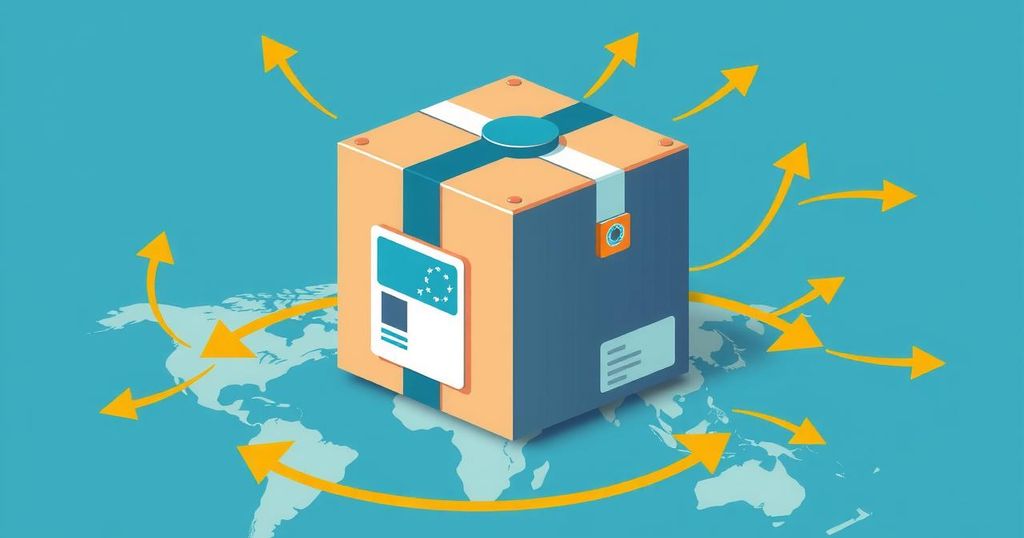This article details the experiment conducted by German YouTuber MegaLag, who attempted to send and track packages to North Korea using AirTags. Despite multiple attempts and significant setbacks, including misrouted packages and COVID-19 restrictions, the experiment highlighted the difficulties of shipping to North Korea and showcased the reliability of tracking technology in overcoming barriers.
In an experiment that pushed the limits of international shipping, a German YouTuber known as MegaLag sought to determine the feasibility of mailing a package to North Korea. His goal was to track the package’s journey to the isolated nation using Apple’s AirTag for real-time location updates. He sent the package to the German embassy in Pyongyang, initiating a unique adventure into the unknown.
Initially, MegaLag discovered that his package was not moving as anticipated. For an entire month, the AirTag indicated that it was stationary in a DHL warehouse located in Frankfurt. In an effort to expedite the process, MegaLag contacted DHL, which initiated an investigation. However, DHL cautioned that resolving the issue could take up to two months. Unfazed, MegaLag sent a second package, also containing an AirTag, to North Korea.
The second attempt similarly faced obstacles. MegaLag directed this package to a North Korean government commission associated with cinematography, but it was mistakenly routed to Seoul, South Korea, where it was subsequently declared lost. Meanwhile, the first package had relocated to Beijing, deviating further from its intended destination. Determined to continue, MegaLag dispatched a third package, which was misdirected to South Korea before being officially returned to Germany, although he never received it back. DHL later informed him that North Korea had been rejecting all foreign packages due to lingering COVID-19 restrictions, a fact unknown to him at the outset of his journey.
Despite these challenges, the efficacy of the AirTags became evident. While DHL marked the packages as lost, MegaLag was able to monitor their exact locations through the AirTag technology. This experiment revealed the difficulties of sending items to North Korea, while also showcasing how modern tracking technology provided clarity amidst complications. In the end, MegaLag’s endeavor not only highlighted the complexities of shipping to such an enigmatic country but also emphasized the significant role of tracking technologies in navigating contemporary challenges.
In conclusion, MegaLag’s attempt to send packages to North Korea exemplified the intricate nature of international shipping, especially to nations with strict protocols. Despite facing numerous setbacks, the experiment successfully demonstrated the effectiveness of AirTags in tracking packages. Ultimately, while the primary objective was unsuccessful, valuable insights into the limitations and capabilities of modern technology were gained from this remarkable journey.
Original Source: www.wecb.fm




